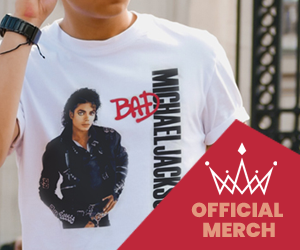Though Michael Jackson moved out of Neverland years before his untimely passing, the 2,700-acre property remains indelibly associated with the King of Pop to this day. Soon, however, the connection will be only in thought, not deed: Neverland is set to be sold.
According to sources familiar with the matter, billionaire Tom Barrack’s Colony Capital is preparing to put the Los Olivos, Calif. property on the market. The firm became Neverland’s managing partner after Barrack struck a deal with Jackson in late 2007 to take over the $23 million note held by private equity fund Fortress.
“We are frustrated, bitterly disappointed and saddened that it has come to this,” said a representative for Jackson’s estate in an electronic message to FORBES. “Sadly, Michael lost control of Neverland during his life as a result of advice from a former manager.”
Representatives for Colony Capital could not immediately be reached for comment.
As I reported in Michael Jackson, Inc: The Rise, Fall and Rebirth of a Billion-Dollar Empire , the agreement between Jackson and Colony was a complex one. Barrack himself said he only took on the note as a favor to Jackson (in an interview for the book, he recalled his words to the singer: “Don’t have me do this … unless you’re really interested in building a program going forward to create some revenue for yourself.”)
The agreement, which took effect in early 2008, called for Colony to manage Neverland as a sort of joint venture with Jackson. For every dollar the company invested in the property, its equity would increase. This meant that while Jackson—and, later, his estate—retained a stake in the property, it decreased on paper as time went on.
Over the past six years, Colony has continued to fund the upkeep of Neverland. That cost, if it’s anything like it was in Jackson’s day, is likely in the neighborhood of $5 million per year. Add in the $23 million note, and back-of-the-envelope math suggests the firm may have invested more than $50 million in the property to date. It also retains the right to sell the property at will.
Still, many options were explored over the years. Toward the end of his life, Jackson himself is said to have been intrigued by the idea of turning Neverland into a school for the performing arts; after his death, many have suggested that the property be turned into an attraction like Elvis Presley’s Graceland.
But as anyone who’s been to Neverland (this writer included) can tell you, Los Olivos isn’t exactly Memphis. The area is nowhere near an interstate, and its narrow mountain roads aren’t conducive to accommodating hundreds of thousands of visitors a year.
“The Estate explored numerous options, including a purchase,” continued the aforementioned representative’s statement. “But financial, land use and zoning restrictions have made all of the proposed options prohibitive given our duty as Executors to be fiscally responsible in protecting and growing the assets of the Estate for Michael’s children.”
Indeed, Jackson’s estate has pulled in more than three quarters of a billion dollars in a little over five years since his death. But that’s before taxes and expenses, not to mention the specter of a $702 million IRS bill that the estate is currently appealing.
Buying back Colony’s share of Neverland—not to mention footing a multimillion-dollar annual upkeep bill for a property that does not generate income—would seem to be an imprudent financial choice.
And so, Neverland may soon have a new owner on paper. But any buyer will have to understand the property will always be the King of Pop’s realm in the minds of millions.
SOURCE: FORBES




